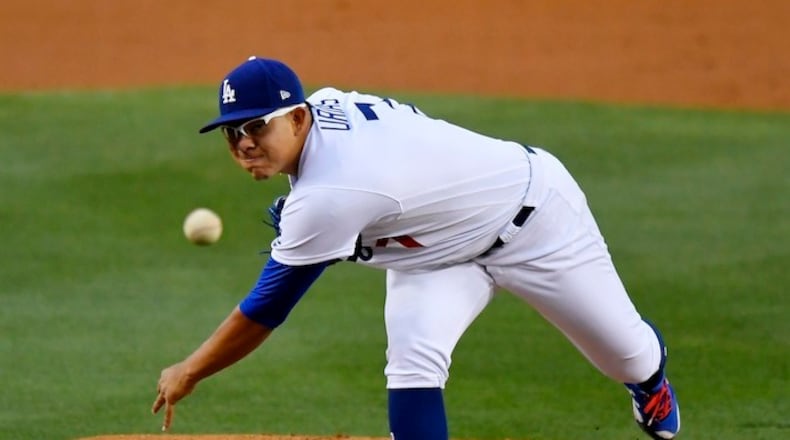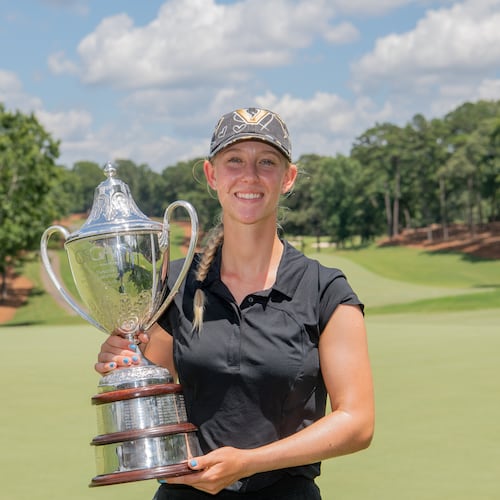The hot button of John Smoltz was pushed last Tuesday when the Hall of Fame pitcher was asked on a conference call about the Los Angeles Dodgers' conservative approach to developing pitching phenom Julio Urias.
This was three days before the Dodgers announced on Friday that Urias, the prized 20-year-old who last year became the first teenager to pitch for the Dodgers since Fernando Valenzuela, would need shoulder surgery for a torn anterior capsule, a procedure that will sideline the left-hander for 12-14 months.
"I think pitchers are less prepared and more nurtured than ever before because in theory, that's what they say is supposed to stop the injuries," said Smoltz, a Fox sports analyst. "And all it has done is increase them.
"That kid-glove treatment is universal, so it's not just the Dodgers. It's a philosophical approach to pitching. I call it a flaw, but I'm not running a team, so it doesn't matter what I think."
Andrew Friedman, the Dodgers' president of baseball operations, went to great lengths to defend the organization's handling of Urias. The plan, devised by team executives, doctors, athletic trainers and Urias' agent, included annual innings limits, closely monitored pitch counts and periods of reduced workloads.
He did not profess to perfect the strategy for raising an ace. He was just trying to protect the organization's most valuable pitching asset by easing him toward a 200-inning season.
"Nothing we do with respect to building our pitchers up is black and white," Friedman said. "There's a ton of gray in everything we do. I don't think the alternative is, 'Just let him go out and throw 200 innings irrespective of how they're built up.' In our opinion, that would lead to more injuries."
Friedman took some solace in the fact that Urias suffered an "acute" tear on one pitch and that the injury was not caused by wear and tear. The rotator cuff and labrum remain intact.
The absence of scar tissue, which would have indicated overuse, should make for a clean surgical procedure and a better chance for full recovery.
"It makes it that much easier of a fix," Friedman said, "and it makes his prognosis that much better."
Urias spent his first two professional seasons at Class A, throwing 541/3 innings in 2013 and 872/3 innings in 2014. He threw 801/3 innings across three levels in 2015, taking a two-month break from May to July to undergo eye surgery.
Urias threw 1272/3 innings between triple A and the big leagues last season, going 5-2 with a 3.39 ERA in 18 games for the Dodgers. But he was demoted to the minor leagues three times and pitched in relief three times.
The Dodgers hoped to cap Urias between 160 and 180 innings this season. Urias reported to spring training with the intention of winning an opening-day rotation spot but was slowed for two weeks in March by strep throat.
He opened the season at triple A, making three starts. Injuries forced the Dodgers to recall Urias in late-April, and Urias struggled with his command in five starts, going 0-2 with a 5.40 ERA, with more walks (14) than strikeouts (11) in 23 1/3 innings. He was sent to triple A on May 21 and was hurt on June 10.
Mark Mulder, who pitched for St. Louis and Oakland from 2000 to 2008, was also on the conference call with Smoltz.
His only criticism of the Dodgers was that if the plan was to slow-play Urias so he could pitch in October, they should have held him back longer.
The worst thing, Mulder said, would have been to shut down Urias in the thick of a pennant race, as Washington did with Stephen Strasburg in 2012.
"If you're gonna put an innings limit on him, you have to start him later," Mulder said. "If I was pitching and they wanted to shut me down or make me take a break, it would have driven me crazy. But these kids today are used to it. I don't agree with it, but it's what these teams are doing. And it's not just the Dodgers."
About the Author
Keep Reading
The Latest
Featured



